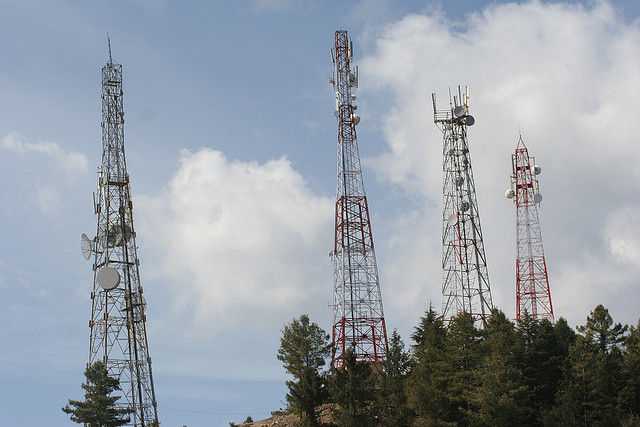
The US Supreme Court is being asked to resolve once and for all whether the authorities need a court warrant under the Fourth Amendment to obtain a suspect's cell-site location data records.
The case the justices were asked to review Friday concerns a Florida man who got a life term for several robberies in a 2012 case built with his mobile phone's location data the police obtained without a warrant.
The case has big privacy implications for anybody who carries a mobile phone. According to the government, that device may be tracked at will without the Fourth Amendment's probable cause standard being met.
What's more, the petition to the high court from defendant Quartavious Davis comes as cell-site tracking has become a choice surveillance tool in the aftermath of a Supreme Court ruling that said the authorities needed a warrant to affix GPS trackers to vehicles. In that 2012 decision, the high court declared that the government's act of affixing a GPS device on a vehicle was the equivalent of a search usually requiring a warrant.
The American Civil Liberties Union is representing Davis and wants the high court to overturn a March decision (PDF) from the 11th US Circuit Court of Appeals, which ruled against Davis based on precedent from the analog age.
According to ACLU attorney Nathan Freed Wessler:
... the Eleventh Circuit relied on Supreme Court cases from the 1970s that held that certain limited information that people voluntarily share with third-party businesses can be accessed by law enforcement without a warrant. But the logic behind those precedents, known collectively as the “third-party doctrine,” has not held up well in the digital age.
The petition (PDF) to the Supreme Court says:
It is virtually impossible to participate fully in modern life without leaving a trail of digital breadcrumbs that create a pervasive record of the most sensitive aspects of our lives. Ensuring that technological advances do not ‘erode the privacy guaranteed by the Fourth Amendment’ requires nuanced applications of analog-age precedents.
In a string of federal appellate court decisions, the government had successfully argued that cell-site records are not constitutionally protected and instead are business records that telcos may hand over if the government asserts that reasonable grounds exist to believe the data is relevant to an investigation.
In all the decisions, the appellate courts and the government cited US Supreme Court precedent known as Smith v. Maryland—the same 1979 decision that paved the way for the National Security Agency's telephone metadata snooping program that Edward Snowden exposed.
Given that no federal appeals court has sided with the Fourth Amendment on the issue, there's a slim likelihood the Supreme Court would intervene at this juncture. However, a California federal judge ruled (PDF) this week that warrants were required for such data. If that is upheld on appeal, that could create the appellate court split that would make the issue ripe for the Supreme Court.
In the case pending before the Supreme Court, the data at issue encompasses MetroPCS records from August 1, 2010 to October 6, 2010. Davis, the defendant, made dozens of calls daily.
The data given to the government includes the dialed numbers of calls made by and to his phone. It also shows whether calls were incoming or outgoing and includes the date, time and duration of calls.
The key dispute involves the data about the cell tower that wirelessly connected the calls from and to Davis, and the location of those towers.
reader comments